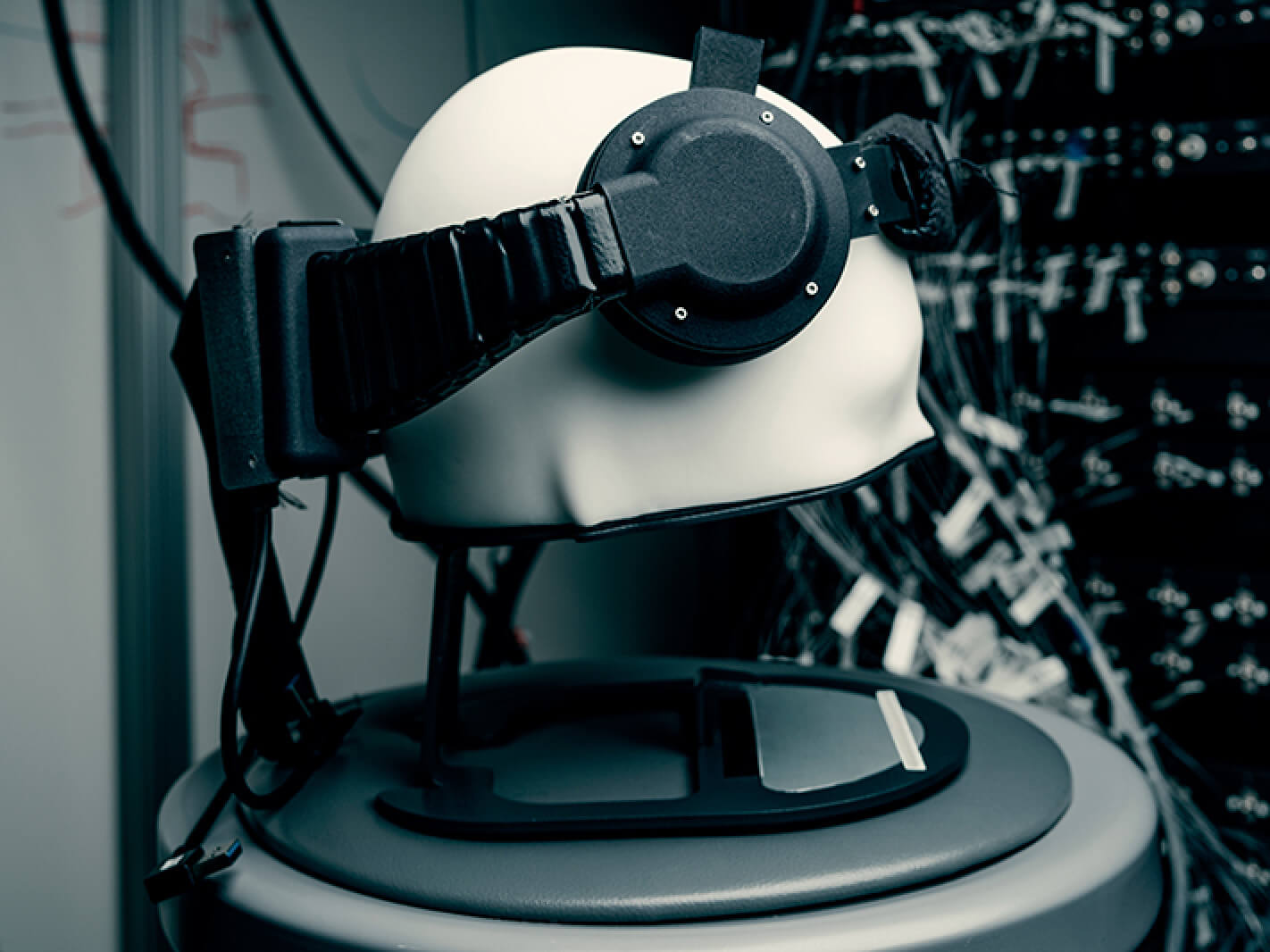Why it matters: Brain-machine interfaces are a subject researchers have been exploring for years, but now many companies big and small are hard at work trying to spearhead their release in consumer products. There's a lot to get excited about, and medical augmentations could benefit from this as well. The privacy aspect is the biggest source of concern - are we at a point where we can trust companies to have a window inside our brain?
Back in 2017 at the F8 conference, Facebook told everyone it was working on a technology that would read a person's brainwaves and allow them to compose messages and emails without using an actual keyboard, by just thinking about the words that needed to be written.
Two years in, the company wants to share an update on the project, and the results are also detailed in a scientific paper published in Nature Communications. Facebook has been financing researchers at the University of California to work on prototype devices that can essentially decode people's speech using implanted electrodes.
Their work is a cool demo of how you can read brain signals to determine words and phrases that a person thinks before saying them. In some of the experiments, people were asked to listen to a list of questions and give out simple answers, such as objects or numbers on a scale. The readings from the electrodes were then compared with patterns that match certain words or phrases in real time.
To give you an example, if the subjects were asked to point out their preferred musical instrument, they'd be able to choose from a limited set of answers like "violin", "drums" or "piano". Then the system would guess when a question was asked and when the person was giving the answer, recording both and using them to detect the context and narrow down a set of likely answers.
The results had an accuracy of up to 76 percent, which is an impressive result when compared with the 7 to 20 percent accuracy expected by chance. On the other hand, neurosurgery professor and project lead Edward Chang said the system is only able to recognize a small pool of words to just nine different questions. He further added the answers were spoken out loud, which isn't exactly ideal.

Facebook's dream is to eventually develop a non-invasive headset that lets users live in an augmented reality they can control using their thoughts. That is why the company has been pouring extensive funding into systems that use fiber optics, lasers and draw inspiration from MRI machines in order to see changes in blood flow patterns.
The social media giant says that's just enough to recognize imagined commands like "home", "select" and "delete", and "would provide entirely new ways of interacting with today's VR systems---and tomorrow's AR glasses." The company didn't get into more detail, but it has plans to have a demo ready for a reveal by the end of this year.
Facebook isn't the only company working on brain-reading devices, as Elon Musk also launched a company to work on embedding flexible threads into people's brains to allow complex communication between man and machine. Like others, he believes humans and machines have to work in "symbiosis", and his company is set to get FDA approval for human testing as early as next year.
It's easy to see how engineers can use brain-reading technology to augment and improve the quality of life for people with medical problems, and everyone could potentially benefit from evolving the way we interact with technology in general for work, play, and communication.
Regardless of whether you're fond of lacing up your neurons to digital devices or not, the privacy question is looming. Facebook has recently been fined $5 billion for deceiving its users about the ways it used their personal information, which gives people ample reason to be wary of letting companies get inside their heads, even with their consent.
For regulators, this is a good time to start thinking about regulation around how brain readings will be collected and used.
